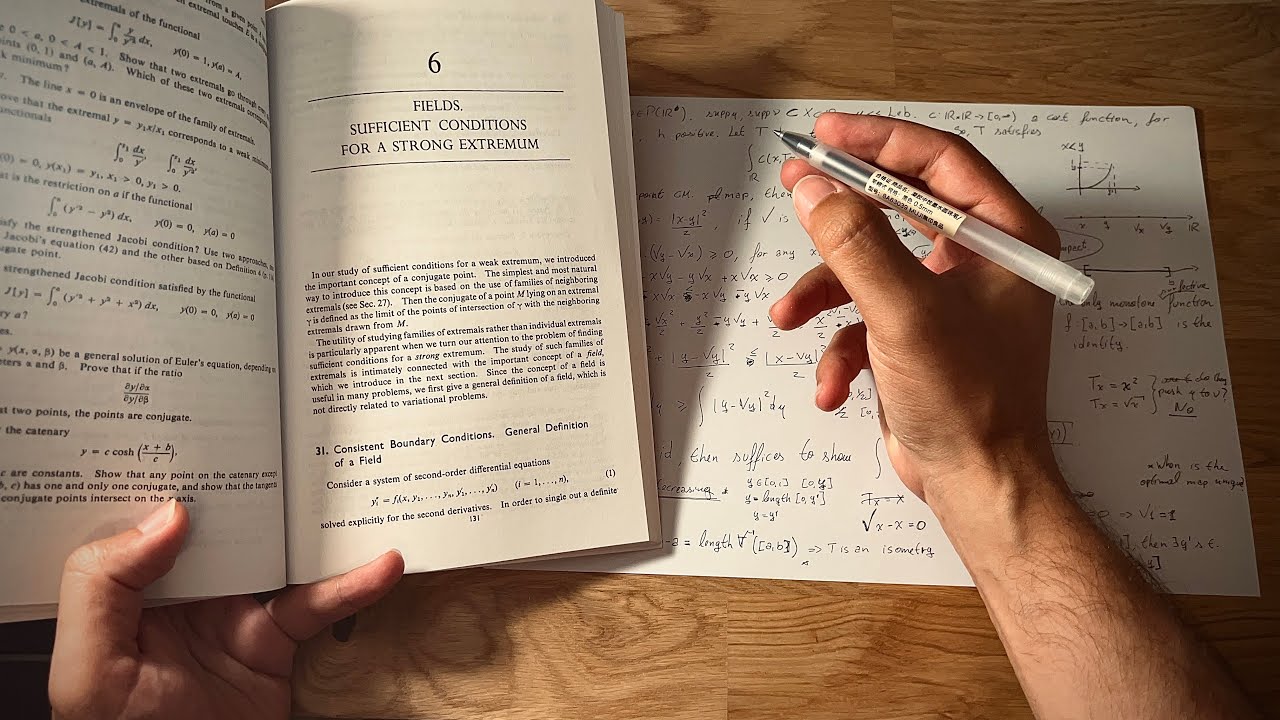The Dark Side of Self Study
Summary
TLDRIn this video, the speaker discusses the 'dark side' of self-study, particularly in mathematics. While self-study offers great rewards and independence, it also presents challenges, such as feelings of inadequacy, overwhelm from too many resources, and struggles with motivation. The speaker emphasizes that these difficulties are normal and part of the learning process. Ultimately, self-study can be incredibly fulfilling, as it fosters personal growth and the satisfaction of learning on your own. The video encourages perseverance, acknowledging that the journey might be tough but is worth it in the end.
Takeaways
- 😀 Self-study is a powerful tool for learning, but it comes with significant challenges that can make you feel frustrated or inadequate.
- 😀 The feeling of confusion and difficulty when self-studying is normal and not a reflection of your intelligence or potential.
- 😀 If self-study were easy, traditional educational institutions wouldn't exist. Struggling is part of the process and indicates you're learning.
- 😀 Too many choices in learning resources can lead to a lack of focus, so it's important to stick to a specific plan or resource and follow through.
- 😀 Overplanning can be a trap—taking spontaneous action, like reading a book for a set amount of time, can be more productive than endlessly planning.
- 😀 Don't let inaction make you feel lazy or unmotivated; even thinking about self-study is a huge step forward and shows you're on the right path.
- 😀 It's okay to not always follow through on plans. Everyone experiences moments of laziness or lack of motivation—what matters is the willingness to keep trying.
- 😀 Self-study can make you feel more connected to what you're learning. The sense of personal accomplishment from learning something on your own is unparalleled.
- 😀 You don’t need a formal education to succeed in learning—self-study can lead to great achievements, as demonstrated by those who teach themselves new skills or knowledge.
- 😀 Self-study is difficult but incredibly rewarding. The knowledge you gain through independent learning stays with you longer and feels more meaningful.
Q & A
What is the main argument of the video about self-study?
-The main argument is that while self-study can be incredibly rewarding and allows individuals to learn on their own, it comes with significant challenges, including feelings of inadequacy, difficulty focusing, and struggles with motivation.
What are the key difficulties associated with self-study mentioned in the video?
-The key difficulties mentioned include feeling stupid when you don’t understand the material, struggling to focus due to the abundance of resources, and feeling lazy or unmotivated when you can’t bring yourself to study.
How does the speaker suggest overcoming the feeling of being 'stupid' when studying?
-The speaker suggests accepting that self-study is difficult and that it's normal to struggle. By acknowledging that learning is hard for everyone, the feeling of inadequacy can be mitigated.
What is the importance of managing focus during self-study, according to the speaker?
-Managing focus is crucial because too many choices and resources can lead to indecision and procrastination. The speaker advises sticking to a single plan and not overthinking or getting distracted by new materials.
What advice does the speaker give for overcoming the issue of too many ideas and resources?
-The speaker recommends selecting a concrete game plan, such as choosing one book or course, and following it through without getting lost in endless options. This helps avoid over-planning and under-doing.
Why does the speaker believe that self-study can leave you feeling lazy or unmotivated?
-Self-study can make you feel lazy or unmotivated when you plan to study but don't follow through. This can lead to feelings of guilt or inadequacy, but the speaker stresses that these feelings are not valid and should not hold you back.
How does the speaker address the issue of self-doubt during self-study?
-The speaker suggests that feeling doubt or frustration is a natural part of the self-study process. Instead of feeling like a failure, it's important to remind oneself that self-study is inherently difficult and that persistence will eventually lead to understanding.
What is the speaker’s attitude toward inaction during self-study?
-The speaker emphasizes that inaction during self-study is not a reflection of laziness. They believe that the very fact someone is even considering learning on their own is significant, and that eventually, they may take action when they are ready.
How does the speaker compare self-study to formal education?
-The speaker compares self-study to formal education by noting that if self-study were easy, schools and universities would not be necessary. This highlights the inherent difficulty of self-study, but also its potential for deep, lasting personal achievement.
What are the rewards of self-study, according to the speaker?
-The rewards of self-study include the deep satisfaction of learning something on your own, the ability to retain what you’ve learned longer, and the sense of accomplishment that comes from tackling difficult subjects without external support.
Outlines

This section is available to paid users only. Please upgrade to access this part.
Upgrade NowMindmap

This section is available to paid users only. Please upgrade to access this part.
Upgrade NowKeywords

This section is available to paid users only. Please upgrade to access this part.
Upgrade NowHighlights

This section is available to paid users only. Please upgrade to access this part.
Upgrade NowTranscripts

This section is available to paid users only. Please upgrade to access this part.
Upgrade Now5.0 / 5 (0 votes)





